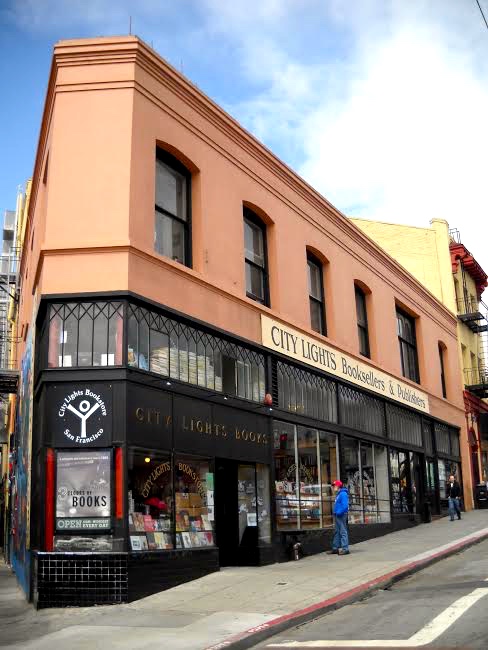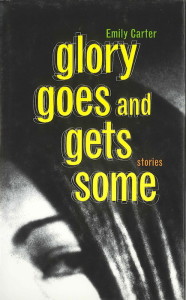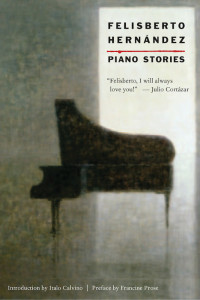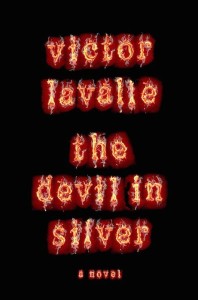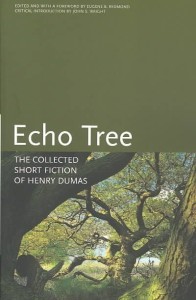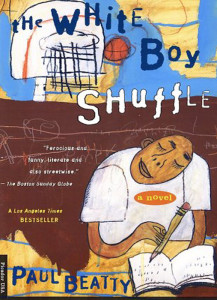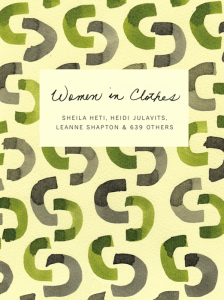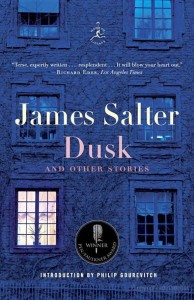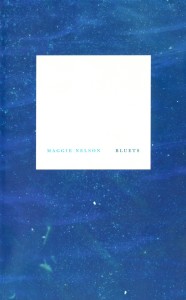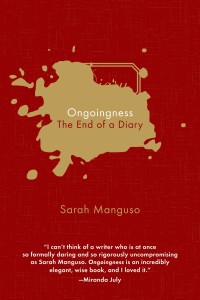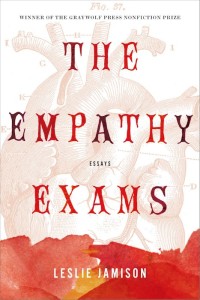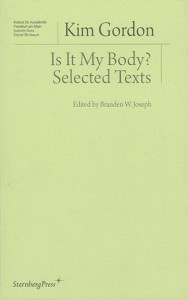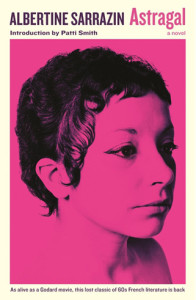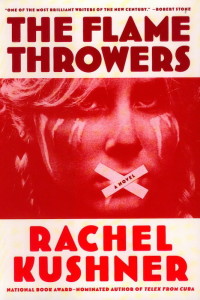
Interview with a Bookstore: City Lights
Lost Ducks, Beatniks, and Sex in the Storeroom
Lawrence Ferlinghetti, poet laureate of Coney Island, cofounder of perhaps America’s most famous bookstore, wrote of his adopted city:
The changing light / at San Francisco / is none of your East Coast light
none of your / pearly light of Paris
The light of San Francisco / is a sea light / an island light
There are moments in the afternoon, when the fickle coastal weather allows, that the upstairs poetry room at City Lights—the bookstore Ferlinghetti founded in 1953 with Peter D. Martin—fills with a perfect San Francisco light. It becomes easy, then, to forget you’re reading at the epicenter of mid-century counterculture, where the first bullets were fired in a literary revolution that would change America, the world.
Named for the Charlie Chaplin movie (Martin was a film buff, and would soon move to New York to open a bookstore specializing in cinema), City Lights would grow quickly—both as bookstore and press—subsuming the adjacent flower shop, and then taking over the entire Artigues building on Columbus Avenue.
We had a chance to talk with Executive Director Elaine Katzenberger, along with several booksellers, about City Lights then and now.
Why did Lawrence Ferlinghetti and Peter D. Martin open City Lights?
Elaine: The idea was to open an all-paperback bookshop, which was an intentionally democratizing move at a time when most books were still sold in hardcover only. Quality paperbacks were very new at the time, and mostly unavailable outside of news racks in New York and spinners in drugstores here and there. Bookshops in San Francisco at the time kept banker’s hours, serving a businessman’s downtown clientele, and the atmosphere wasn’t particularly welcoming for the young writers and readers who wanted a place to congregate and engage with books—and with each other. The idea from the beginning was to create a “literary meetingplace,” which became the City Lights masthead.
How is the legacy of the Beats reflected in the store today?
Elaine: In a nutshell, the writers of the Beat Generation were responding to the political conservatism and cultural conformism of mid-century America. The writings and the lifestyles we associate with the Beats were a conscious attempt to break out of scripted roles and models for “success.” The desire was for greater personal authenticity and individual voice, for an expanded realm of choice and for some form of freedom from the capitalist treadmill. Of course, a critical part of that ethos was to experiment with literary forms—both fiction and poetry, and later, non-fiction. Poetry in particular became a means to vividly interact with the zeitgeist, and it was a conscious decision to popularize the form, make it “speak” directly to readers (and sometimes huge live poetry audiences) in their own vernacular. It was also a time when non-Western spiritual and cultural influences were finding their way into the culture, and the literature and practice of Zen Buddhism in particular played an important role in motivating the desire for an “expanded consciousness.”
Every aspect of those aspirations—the attempts to throw off oppressive or repressive forces, both external and internal; attempts to open the mind and to engage politically; the commitment to creativity as a potent form of revolutionary thinking and action—all of this is still central to our sense of mission and purpose.
How intimate has been the relationship between City Lights the bookstore, and City Lights the publisher?
Elaine: City Lights was founded as an attempt to further a robust, informed confrontation with the realities of the times, and to provide a place for people to engage with ideas and with each other. Lawrence Ferlinghetti launched his publishing imprint two years after he co-founded the bookstore, and with that City Lights was able to grow beyond the physical limitations of the bookstore itself, creating a network of writers and readers across the country and, after a while, around the world. Without the publishing company, City Lights would have been an extraordinary bookstore, but with it, City Lights began to create its own enduring contribution to cultural history, and at a certain point, it began to assume mythic proportions. The bookstore has become a destination as a result, the physical space where people come to experience something of what they perceive to be the mission and aesthetics of our project.
What’s your favorite section in the store?
Andy Bellows, Store Manager: I have a soft spot for our Surrealism section. It was here before I arrived (over 20 years ago) and has been surprisingly vibrant over all these years. It not only has the well-known French texts, but it also incorporates Surrealist descendants from all over the world.
Layla Gibbon: Oulipo or Topographies.
Vanessa Martini, Receiving Supervisor: Our fiction sections are almost too broad to really have those as my answer, so I will go a little smaller and pick Topographies and Commodity Aesthetics. These two sections face each other and are the clearest examples, to my mind, of both academic publishing and bookstores adapting to meet the discourse around digital culture. Topographies started as a space/place/body section; it has since expanded to include digital humanities and the closest City Lights comes to computing books. Commodity Aesthetics can seem grab-bag at times but includes books ranging from race theory to critiques of fashion to histories of piracy into the Internet era. I love shelving them and always discover something rad.
If you had infinite space what would you add?
Andy: Actually, not having infinite space is a blessing. The relatively small space allows us to concentrate on carrying only what we want.
Peter Maravelis, Events Coordinator: For the sake of independent presses everywhere, I’d propose the creation of a think-tank and design agency whose sole purpose is to strive to make books more beautiful whilst affordable to produce. Using the latest in 3-D printing, CNC, laser, and recycling technologies, such an agency would encourage the exploration of an aesthetic born from a post-minimalist perspective. The lusciousness of embossed linen covers, letterpress quality type, stitched binding, and iridescent paper—all in the service of matching the printed message with a worthy vessel to carry it.
Tân Khánh Cao: Books in French and more room to display art books.
Layla: Perhaps more space for art/photography monographs or an escape hatch for when drunks and/or maniacs harass.
Vanessa: More gender theory. A nap chair for the staff.
What do you do better than any other bookstore?
Andy: I think our poetry room is unrivaled. We’ve dedicated our entire upstairs floor to poetry. It’s a beautiful space that begs you to grab a book and read bathed in afternoon light.
Tân: Our commitment to issues of race and class is not only present, but also essential to the way the store is curated. We also stock an unusually large selection of backlist titles.
Vanessa: My favorite thing is when someone comes to the counter and says either “I’ve been looking for this book everywhere and nobody’s had it but you” or “I have never seen this book anywhere else; never even heard of it, so I’ve got to get it.” That’s the best feeling.
Layla: Providing a different point of view by not selling books that are available everywhere, focusing instead on literature from non-Western perspectives and smaller presses, and on subjects people don’t necessarily know they are looking for like Surrealism, small press poetry, people’s history, stolen continents, critical theory, and so on…
Who’s your weirdest regular?
Andy: We recently received a letter from a young woman who wanted us to know, and hoped we wouldn’t be mortified by the fact, that she had surreptitiously placed her father’s ashes in various nooks and crannies throughout our poetry room. She said it was her father’s favorite place in the world and she was comforted in knowing he was there. He’s now a regular.
Tân: I don’t want to talk about him as the “weirdest” because he is brilliant and fascinating and sweet. He is more marvelously strange than weird.
Layla: Maybe the endless stream of frustrated business people who are furious that we do not stock books about leadership/the 40-hour workweek, etc.
Vanessa: Regular customers tend not to be so outlandishly weird. Weird regular visitors, though, we get a lot of. It feels a bit wrong to describe most of them though as they’re usually people who’ve been screwed over by the shameful lack of mental health care in this country. I guess, by extension, Reagan is the weirdest regular.
What’s the craziest situation you’ve ever had to deal with in the store?
Andy: We once had a customer complain that someone was smoking in the basement. When we went down to check it out we discovered a woman “servicing” a man who then complained to the woman, “I told you not to smoke!” As if that was the only problem.
Tân: For a while there was a woman who used to sneak in a staff door, and slide down the wooden chute into the room we receive books in. She made herself a bed out of bubble wrap at the bottom of the chute and was found asleep several times.
Layla: We are open from 10AM to midnight and I tend to work night shifts, so some of the “crazy situations” I have had to deal with aren’t that fun to recount. Not sure if these are “crazy” enough, but since working at City Lights I have had a curse put on me by a European “count,” befriended one of the cinematographers on Boris Karloff’s last movie, found out the ladies who worked at the Lusty Lady peepshow (RIP) staged a photo-shoot in the Poetry Room, and listened to a guy explain to his kids that “that Jack Carroway guy was born here.”
Vanessa: Definitely the duck. I can’t see the floor of the entrance when at the counter and some German tourists said “Excuse me, did you know there is a duck in here?” No, no I did not know. To make a long-ish story short, the duck came, saw, freaked out, flew around, waddled out, was eventually caught by some good Samaritans, and for all I know is paddling around Golden Gate Park now. I’ll never forget the sound of its quacks drifting up from the basement, though.
What’s your earliest/best memory about visiting a bookstore as a child?
Tân: Best. After cashing my first paycheck at 15, I came to City Lights. Browsing, I found Giovanni’s Room by James Baldwin. Dell pocket edition. I had never heard of James Baldwin. I came back after every paycheck for another until I had read them all.
Vanessa: Being overwhelmed by all the books and being told I could only choose one. Still a problem.
If you weren’t running/working at a bookstore what would you be doing?
Tân: I’ve been in a bookstore for most of almost two decades. I have no idea.
Layla: Finding other ways to frustrate businessmen.
What’s the future of bookselling?
Peter: Booksellers will more fully occupy their role as guardian of the long narrative and extended attention span. As texting and tweeting fragment language into a patois of bourgeois jingoism, the booksellers shall arise to their rightful place as protectors of critical thinking, humanism, and democracy. They will encourage the citizenry to go against the grain. Book Clubs will emerge where members memorize entire novels in one sitting (shades of Ray Bradbury). Giordano Bruno will dance happily inside his tomb.
SLIDESHOW: City Lights Staff Recommendations
- TAN RECOMMENDS: I was at a party and Emily Carter was there and she told a great story. I got home at 3AM and found all my clothes on inside-out. I went to bed. And then, about to fall asleep, I bolted upright and realized it was Emily Carter who’d turned me inside-out.
- TAN RECOMMENDS: Reading Felisberto Hernandez’s Piano Stories is like rolling a beautiful glass marble around in your mouth and forgetting your fear of choking.
- TAN RECOMMENDS: How long would you last locked up in a mental hospital with a monster and no release date? A nightmare with friends. And thanks to the way Victor LaValle pokes holes in the racism of One Flew Over the Cuckoo’s Nest, it tickles.
- TAN RECOMMENDS: Henry Dumas reminds me of Eric Dolphy. I’m not sure just what it is. There is the music of the writing, the language. The work is mythological, natural, revolutionary. It is incantation and proof. No smoke and mirrors, no show. Magic.
- TAN RECOMMENDS: Ever been smacked so hard it makes you giggle? Me neither.
- VANESSA RECOMMENDS: Through original interviews, conversations, surveys, projects, diagrams and drawings from over 600 contributors, Women in Clothes explores the wide range of motives that inform how women present themselves through clothes, and what style really means.
- VANESSA RECOMMENDS: Do you remember those rock tumblers that would turn any old pebble into a shining jewel? These stories are just like those jewels: endlessly worked until no rough edges remain, buffed to an impenetrable, bright surface in which you can almost see yourself. Excellent.
- VANESSA RECOMMENDS: A strange thing happened when I finished this book: I realized I could not really remember what words had been said, but instead the deep sensations I felt while reading. This is a hypnotic exploration of time and memory that evokes much but prescribes little (and that’s a good thing).
- VANESSA RECOMMENDS: If you’ve got a glowing, tender heart and wonder how it’s possible to feel so much, this is the book for you. Hypochondriacs are advised to skip essay #2.
- LAYLA RECOMMENDS: Fantastic collection of Kim Gordon’s writing about art, music, and culture compiled from old issues of Artforum and fanzines. An excellent contextual companion to her recent autobiography.
- LAYLA RECOMMENDS: A modern Northern California noir classic, as dark and unfathomable as the Lost Coast.
- LAYLA RECOMMENDS: Sarrazin was referred to in the French press as the “female Genet.” This is a romantic outlaw adventure written in vivid, darkly ironic prose, capturing both the sordid boredom and the seductive danger of the criminal underworld and life on the lam.
- LAYLA RECOMMENDS: Willis captures the excitement, danger, and kicks inherent in the 60s and 70s NYC music scene, creating a passageway back to a long gone era with insights that are disarming, politically charged, and hilarious, while at the same time transmitting the fact that if you can’t dance to it alone in your bedroom, what’s the use?
- LAYLA RECOMMENDS: Kushner’s writing is authoritative and vivid, as exciting to read as the worlds she writes about. It’s was intoxicating reading about a young woman making her way in worlds in which women don’t usually get to exist, even in fiction. A cinematic, unstoppable, alienated and kick-fueled adventure.
City Lights is located at 261 Columbus Ave, San Francisco, CA 94133.









